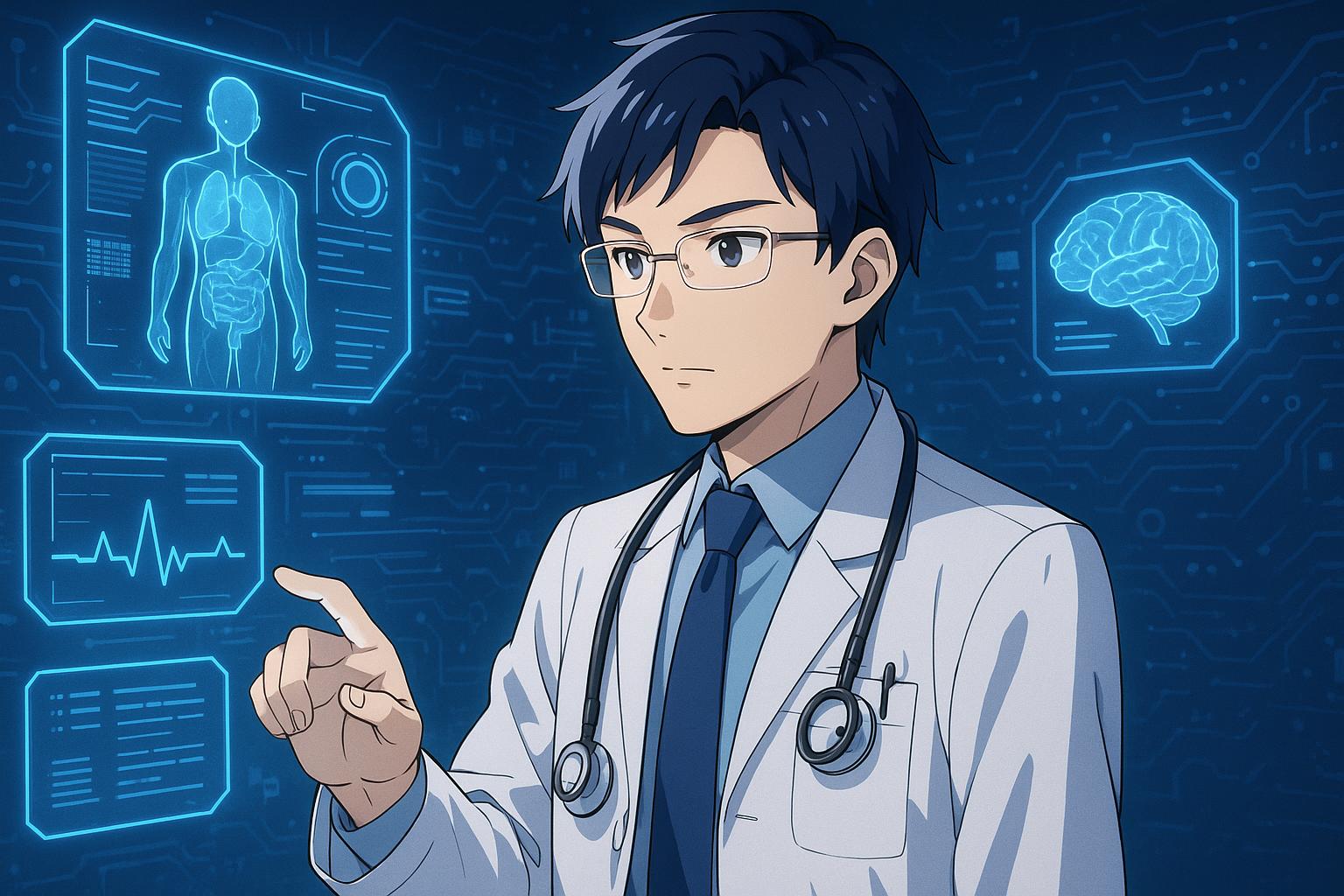The healthcare industry is on the brink of a significant transformation, largely propelled by artificial intelligence (AI) and machine learning (ML). These technologies are becoming indispensable for enhancing patient outcomes, streamlining operational processes, and assisting in critical decision-making, marking a new era in medical care.
As the volume and complexity of medical data proliferate, AI and ML present healthcare professionals with the speed and accuracy necessary for more informed decision-making. Dr. Christopher Driskill, a prominent physician and advocate for medical innovation, highlights that AI's capacity to enhance diagnostic precision is particularly noteworthy. In medical imaging, for example, AI algorithms are designed to interpret X-rays, MRIs, and CT scans with a level of accuracy that can rival, and sometimes exceed, human specialists. These advancements allow for earlier detection of conditions like cancer, often catching signs long before patients show symptoms. Such proactive interventions not only save lives but also significantly reduce the financial burden of later-stage treatments.
Moreover, Dr. Driskill asserts that precision medicine, which tailors treatments to individual patients' genetic, environmental, and lifestyle factors, is fundamentally supported by AI and ML. This personalised approach, he points out, relies on complex data analysis that was previously beyond manual handling. By tapping into genetic variations and biomarkers, AI can suggest tailored therapies that are more effective while mitigating adverse side effects.
In addition to its clinical applications, AI and ML are streamlining the often cumbersome administrative aspects of healthcare. Tasks such as billing, insurance claims, and patient record management are typically riddled with inefficiencies and errors. With the aid of natural language processing (NLP), AI systems can automatically transcribe medical notes, making patient histories easier to access and manage. Enhanced billing systems powered by ML algorithms help ensure accuracy and transparency, reducing costly errors while speeding up the claims process. This technological efficiency allows healthcare providers to dedicate more time to patient care rather than administrative duties.
The benefits of AI extend into mental health care as well, an area that has traditionally faced significant resource challenges. Driskill notes that AI-powered applications offer preliminary support for conditions like anxiety and PTSD by employing empathetic NLP interactions. While these tools are not substitutes for professional care, they serve as vital first-line resources, allowing for timely interventions in critical situations.
The potential of AI in drug development is equally revolutionary, significantly expediting what is often a lengthy and costly process. By analysing vast datasets, AI can identify promising drug candidates and simulate molecular interactions, effectively reducing the time needed to bring new therapies to market. This was particularly evident during the COVID-19 pandemic, when AI was pivotal in identifying vaccine candidates swiftly.
Chronic diseases, which necessitate continuous monitoring and management, are also benefitting from technological advances. AI-powered wearable devices enable real-time tracking of metrics like blood pressure and glucose levels, alerting healthcare providers to potential health crises before they occur. Such proactive measures empower patients, guiding them toward healthier lifestyles by providing actionable insights based on their unique data.
Despite these numerous advantages, the integration of AI and ML into healthcare raises ethical and privacy concerns that must be addressed. Safeguarding patient data is paramount, given that AI systems rely on large datasets to function optimally. The need for transparency in AI decision-making processes is also critical. Many algorithms operate as “black boxes,” complicating efforts to comprehend and explain their recommendations. To maintain trust, healthcare organisations must ensure compliance with privacy laws such as HIPAA, while researchers continue developing frameworks for explainable AI.
Collaboration emerges as a vital element in the successful adoption of AI in healthcare. Dr. Driskill emphasises that a synergistic approach involving medical professionals, data scientists, engineers, and regulatory bodies is essential to ensure these technologies meet rigorous safety and effectiveness standards. Educational initiatives aimed at equipping healthcare workers with the skills to interact proficiently with AI tools are also crucial. By fostering an environment where human expertise and advanced technology coexist, the potential of AI in healthcare can be maximised while minimising inherent risks.
As AI and ML redefine the landscape of healthcare, they promise a future marked by enhanced decision-making capabilities, operational efficiencies, and improved patient outcomes. These technologies are not just innovations— they represent a paradigm shift toward a more empathetic and effective healthcare system. However, to ensure their success, stakeholders must be diligent in addressing the ethical challenges they bring and focus on collaborative solutions that align with both innovation and responsibility.
In this evolving context, the ongoing advancements in AI not only hold the key to improved health outcomes but also foster a vision of healthcare that is more accessible, equitable, and responsive to the needs of all patients. The journey has just begun, but the implications for a healthier future are boundless.
Reference Map:
- Paragraph 1 – [1], [4]
- Paragraph 2 – [1], [2], [3]
- Paragraph 3 – [3], [5], [6]
- Paragraph 4 – [1], [4], [6]
- Paragraph 5 – [1], [5]
- Paragraph 6 – [1], [4]
- Paragraph 7 – [6]
- Paragraph 8 – [1], [2], [3]
- Paragraph 9 – [1], [4]
- Paragraph 10 – [5]
Source: Noah Wire Services
